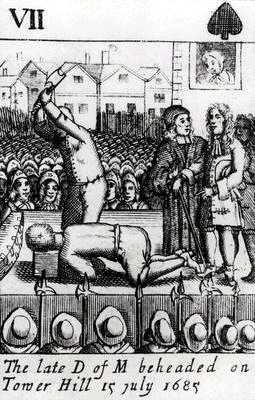 Thesis statement: Capital punishment proves ineffective as an instrument of deterring violent crime on political, ethical and theological grounds.
Thesis statement: Capital punishment proves ineffective as an instrument of deterring violent crime on political, ethical and theological grounds.
The American public has long been supportive of capital punishment for convicted murderers, and that support continues to grow even today. In a Gallup Poll conducted in 1981, two in three Americans expressed overall approval for the death penalty. That support rose to three in four people in 1991, and to four out of five in 1994. Although these polls need to be interpreted with careful attention, it is obvious that there are few issues on which more Americans agree: “in at least some circumstances, death is seen as a justifiable punishment.” (Murray, 751)
Having backed the claim for the ineffectiveness of capital punishments in preventing crime using statistics, an important disclaimer need to be added – “Statistics is not everything”. In other words, even if capital punishment is helpful as a deterrent of violent crime, it cannot justify the execution of a few innocent victims alongside the guilty ones. Hence, the claim that the death penalty was “morally obligatory” based on statistical findings alone is simply insufficient in dealing with the complexities of human nature. For example, Clive Stafford Smith, a renowned expert on ethical aspects of law makes some valid observations in his research article for the New Scientist:
“I have spent more than 20 years representing some 300 men, women and children who faced capital punishment in various US states. I do not think of my clients as statistics. Six of them have died in the execution chamber. Often I have staved off executions only at the last minute. Many of my clients have been innocent: human beings make fallible judges, and no machine has more human parts than the criminal justice system. I therefore feel strongly that when academics step out of the classroom and into public discourse on this matter they must be held responsible for their actions.” (Smith, 21)
The above argument was presented as a polemical response to a paper published by Sunstein and Vermeule in the Brookings Joint Center for Regulatory Studies on March of 2005. In this paper, Sunstien and Vermuele claim that “every death penalty execution saves the lives of 18 potential victims”. First of all, a mathematical approach to solving human fallacies is inappropriate. On top of that, the statistic given in support of the “death penalty efficacy” is largely second-hand. Of the thousands of studies published on the subject over the last decade or so, most of the evidence in support of capital punishment was taken from research findings taken many years back. Also, the findings were carried out by politically conservative organizations like the Brookings Institute, etc., which is likely to be biased in its views. What’s more, “recent evidence” suggests that capital punishment does not save lives more than to a superficial degree (Smith, 22)
While the death penalty should essentially belong to the domain of politics and policy-making, its traditions were based on theology. The United States is presently the leading country in the industrialized world with the greatest following of Christianity in general and Catholicism in particular. Given that nearly one in four Americans are Catholic, the views of the Church on matters of capital punishment need to be given importance. Studies of Catholic priests and parishioners in the United States support this supposition. For example, a 2003 study of priests and pastors came to the conclusion that the church authorities are unanimously against the concept of death penalty. For example,
“Catholic clergy may be especially influential. In contrast to most other religions, the Catholic faith emphasizes doctrine and tradition over individual conscience on matters of faith and morals. Although many Catholics ignore church doctrine on issues such as divorce, the views of at least some Catholics may be influenced by church teaching. To the extent this is true, one would expect a convergence of opinion between clergy and certain congregants on religious issues that have political implications.” (Mulligan, 741)
Also, devoted Catholics who attend mass on a regular basis and hence are exposed to moral messages from the pulpit are overwhelmingly against death penalty as well as abortion. So, the death penalty debate is played out on the political and personal-values domains. In any sound democracy, personal values should translate into public policies. The fact that the significant Catholic minority in this country don’t find public representation is a statement on the state of democracy in America and not a reflection of true public opinion (Mulligan, 745).